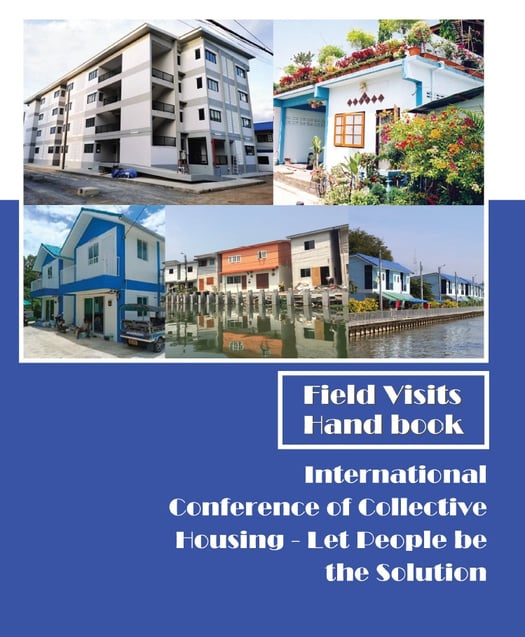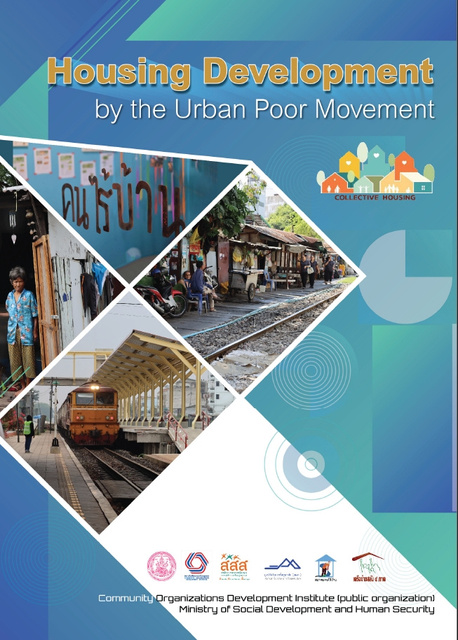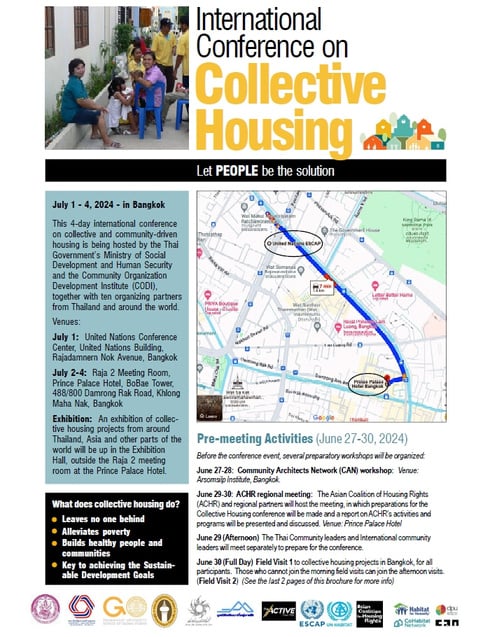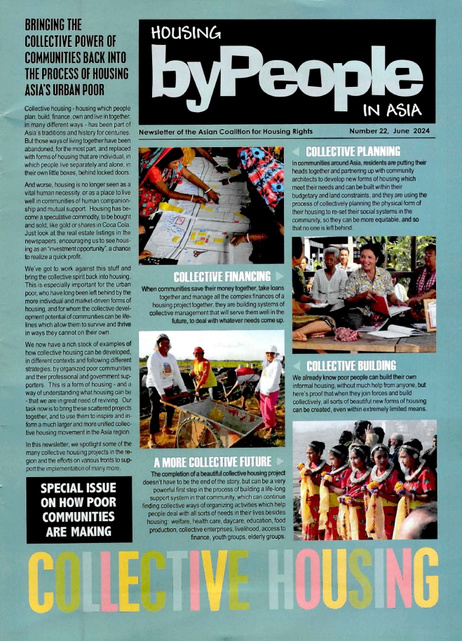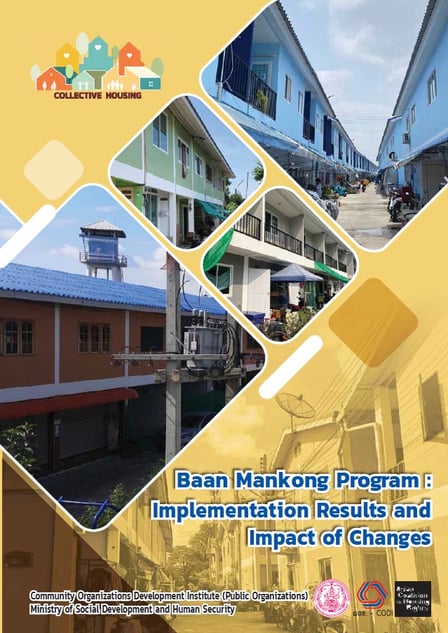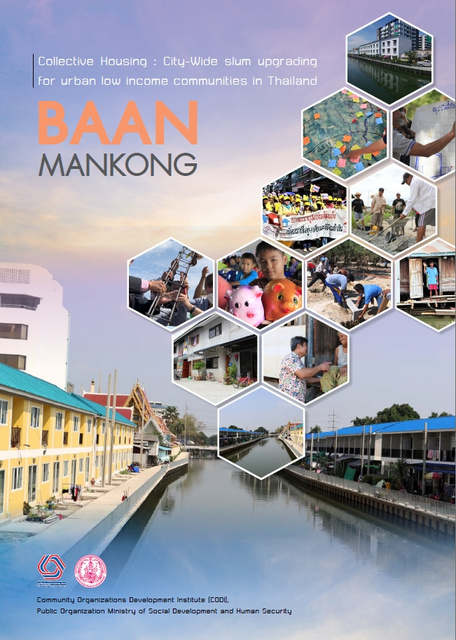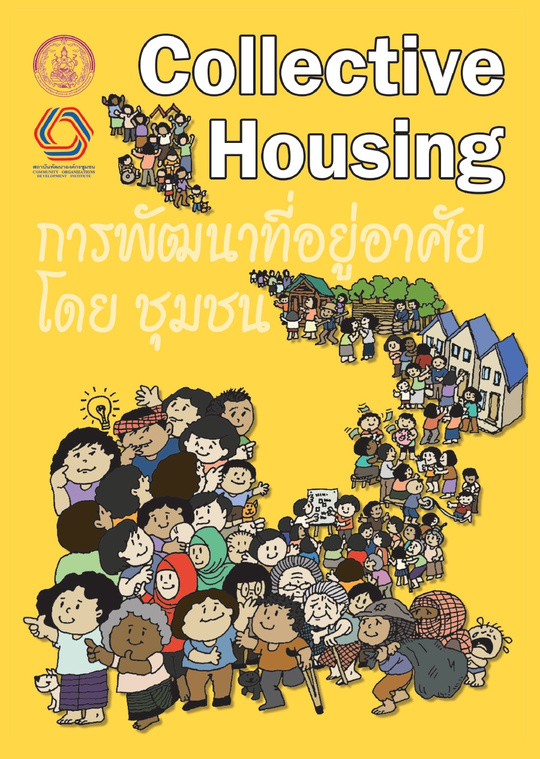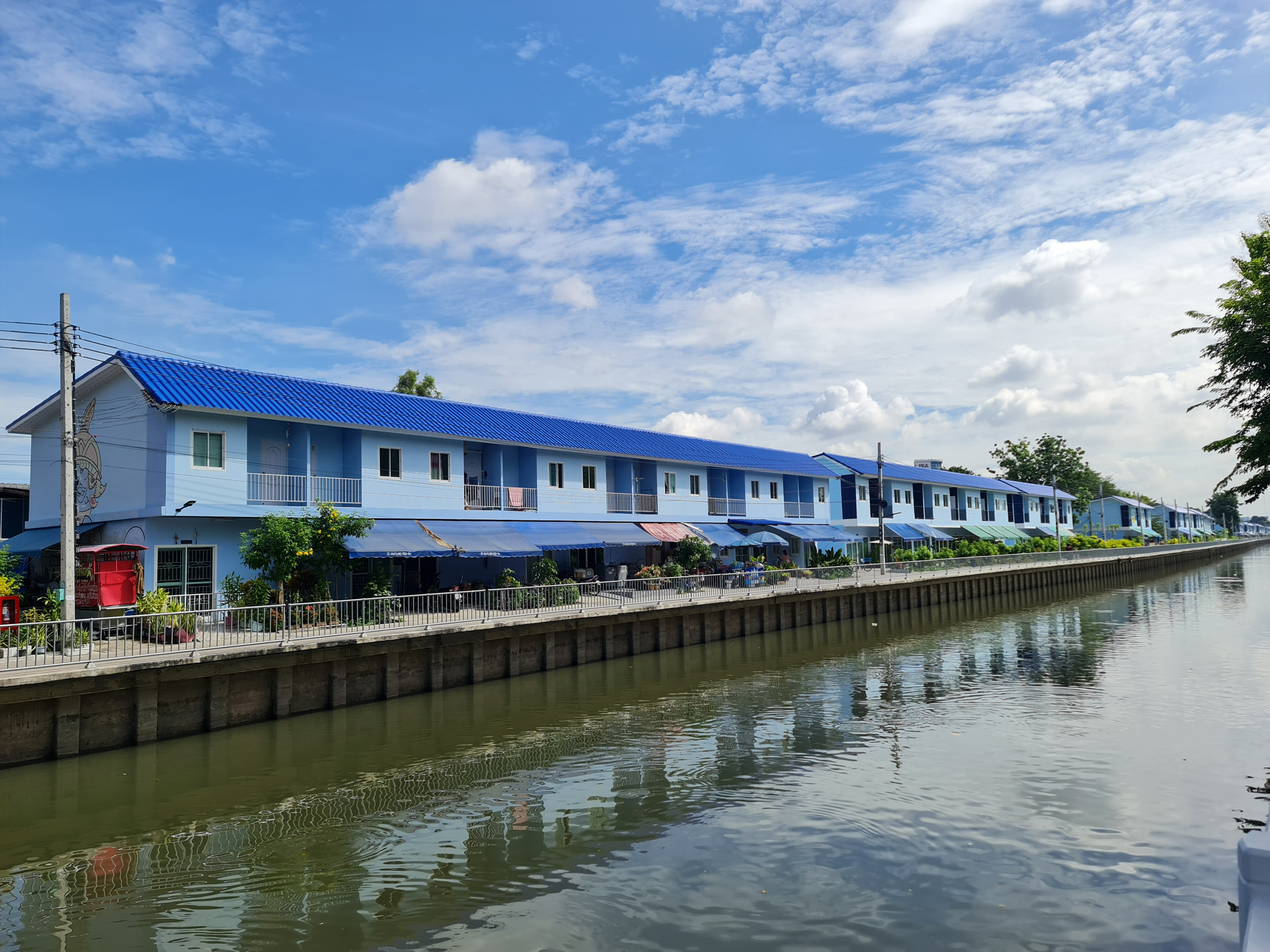
ENGish Version
COLLECTIVE
HOUSING
2024
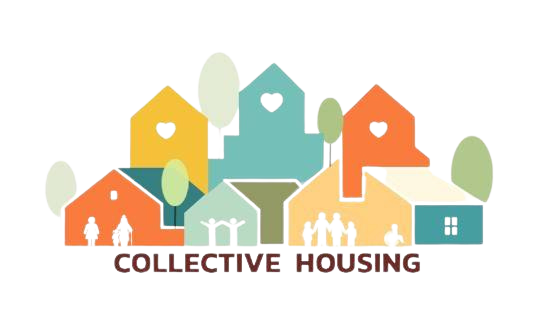
Explore The Report
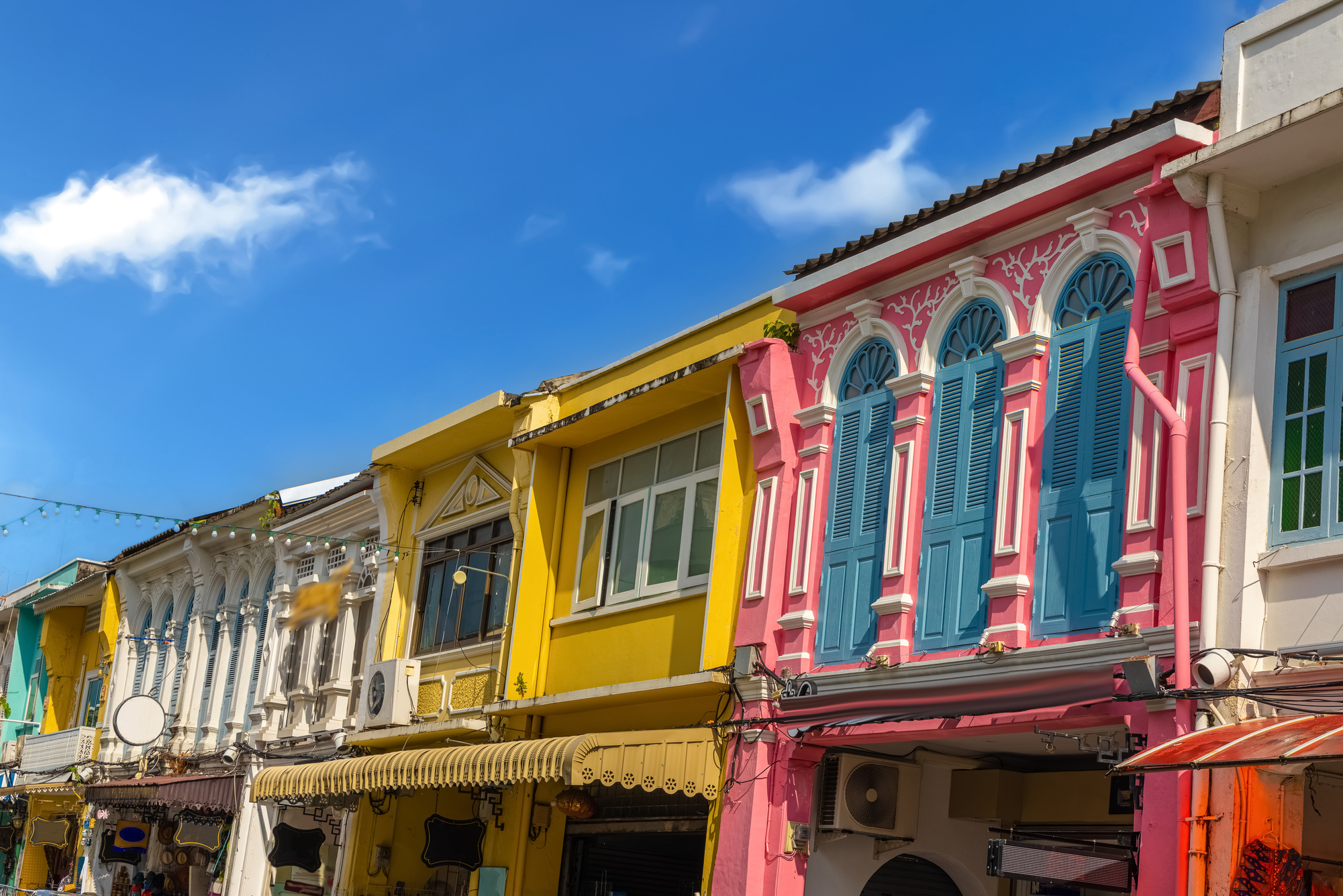
Collective Housing
Forum Between
1 - 4 July 2024
Organized by the Ministry of Social Development and Human Society. By the Community Organization Development Institute (Public Organization) in collaboration with the Asian Housing Study Center Foundation College of Global Studies Thammasat University Department of Housing Faculty of Architecture Chulalongkorn University Arsom Silpa Institute and the Community Architects Network (CAN), supporting and co-organizing international partner agencies UN-ESCAP, UN-HABITAT, International CO-Habitat Network, Development Planning Unit, University College of London, Habitat for Humanity
schedule
July 1 - 4, 2024 - in Bangkok
This 4-day international conference
on collective and community-driven
housing is being hosted by the Thai
Government’s Ministry of Social
Development and Human Security
and the Community Organization
Development Institute (CODI),
together with ten organizing partners
from Thailand and around the world.
Venues:
July 1: United Nations Conference
Center, United Nations Building,
Rajadamnern Nok Avenue, Bangkok
July 2-4: Raja 2 Meeting Room,
Prince Palace Hotel, BoBae Tower,
488/800 Damrong Rak Road, Khlong
Maha Nak, Bangkok
Exhibition: An exhibition of collective
housing projects from around
Thailand, Asia and other parts of the
world will be up in the Exhibition
Hall, outside the Raja 2 meeting
room at the Prince Palace Hotel.
Pre-meeting Activities (June 27-30, 2024)
Before the conference event, several preparatory workshops will be organized:
June 27-28 : Community Architects Network (CAN) workshop: Venue:
Arsomsilp Institute, Bangkok.
June 29-30: ACHR regional meeting: The Asian Coalition of Housing Rights
(ACHR) and regional partners will host the meeting, in which preparations for the
Collective Housing conference will be made and a report on ACHR’s activities and
programs will be presented and discussed. Venue: Prince Palace Hotel
June 29 (Afternoon) The Thai Community leaders and International community
leaders will meet separately to prepare for the conference.
June 30 (Full Day) Field Visit 1 to collective housing projects in Bangkok, for all
participants. Those who cannot join the morning field visits can join the afternoon visits.
(Field Visit 2) (See the last 2 pages of this brochure for more info)

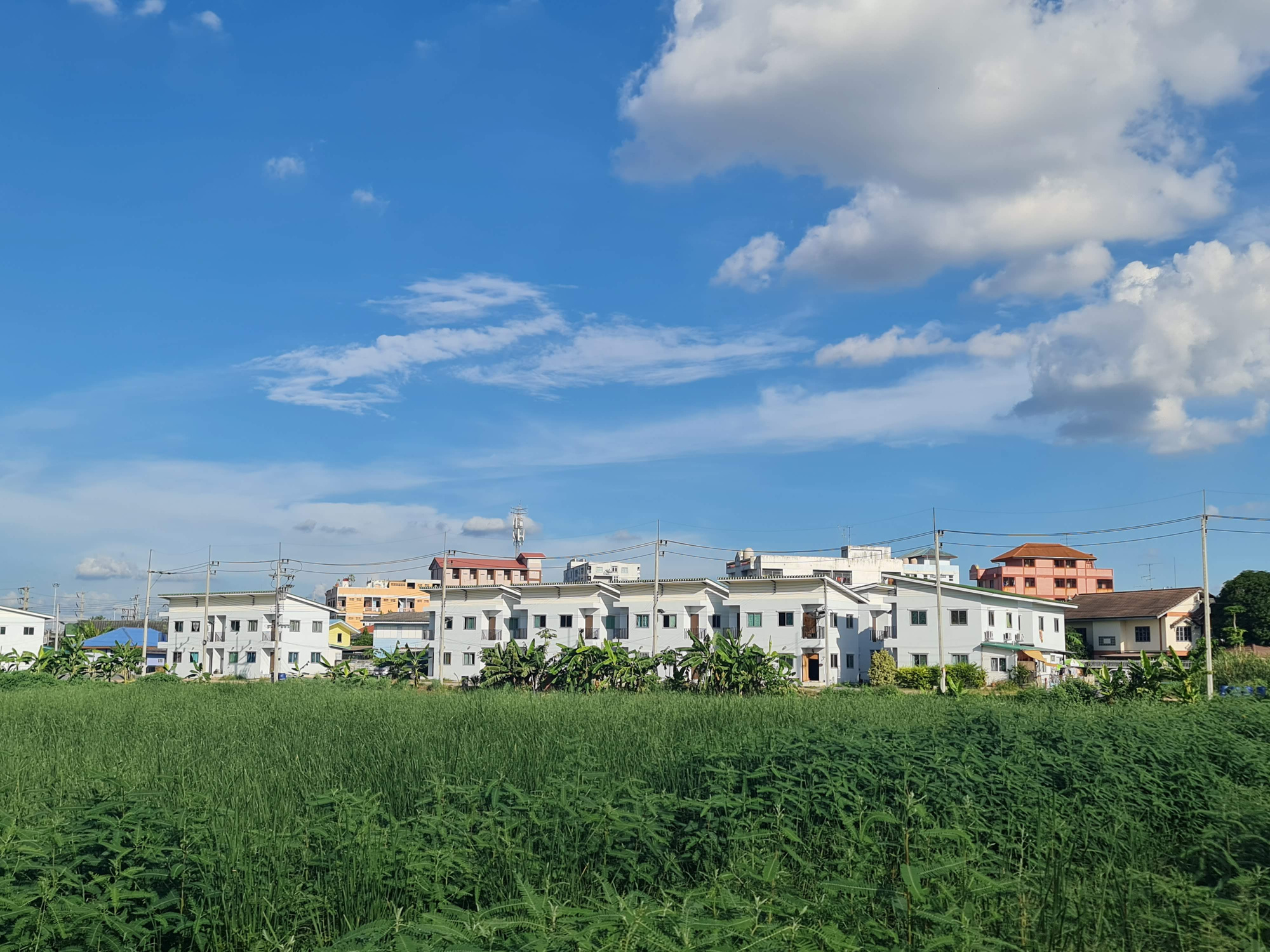
Monday July 1, 2024
SESSION 2: Panel discussion
: Why collective housing? (10:40 – 12:00)
SESSION 3: Collective housing for all in Thailand
(13:00 – 14:30)
SESSION 1:
Inaugural session (08:00 - 10:30)
SESSION 4: Case studies of collective housing in Asia and other places (15:00 – 16:30)
- Welcome speech by Ms. Lin Yang, Deputy Executive Secretary for Programs, United Nations Economic and Social Commission for Asia and the Pacific (ESCAP).
- Report on the international conference on collective housing, by Mr.Kritsada Somprasong Director of the Community Organization Development Institute. (Public Organization)
- Opening speech of the meeting by Mr. Anukun Piedkaew, Permanent Secretary of the Ministry of Social Development and Human Security.
- Video on collective housing
- Keynote speech, “Buddhist dharma in working on collective housing”, by Phra Phrom Phacharayanamuni (Phra Archarn Jayasâro), a senior Buddhist monk.
- (Moderated by Mr. Suthichai Yoon, senior Thai journalist) This discussion will focus on the significance of collective housing from different perspectives, to be presented by speakers from around the world. In spite of the fact that there is so much real estate and public sector housing in the market today, why there is a need to advance the agenda of collective housing? What will be the “added value” of designing and implementing policies and programs on Collective Housing in the world?
- Panel includes Dr. Kobsak Phutrakul (Chairman of CODI Board), Kirtee Shah (ASAG, INHAF, Former Adviser to Indian PM), Lajana Manandhar (ACHR Secretary, Lumanti, Nepal), Adriana Allen (Lecturer at DPU in London, and former HIC President), Van Liza Aung (Chairperson, Women For The World NGO in Myanmar), Lea Oswald (from UrbaMonde and Co-Habitat Network, in Switzerland) and a representative from Shack Dwellers International (SDI) in South Africa. Lunch (12:00 - 13:00)
- Video on collective housing in Thailand
- Introduction: “Collective housing as a key to human security and sustainable development: the experience of Thailand”, by Ms. Somsook Boonyabancha (Former CODI Director and Chairperson of Baan Mankong Housing Program in Thailand)
- Case studies of collective housing in Thailand (moderated by Ms. Thipparat Noppladarom, Former CODI Director, and Ms. Chalermsri Ladakul, Deputy Director, CODI) Case studies will be presented by Thai community representatives and will include: citywide housing in Chum Phae, canal housing projects, homeless housing, railway community housing, rural housing and sustainable development in Srakaew, and Baan Por Pieng housing for the poorest.
- Coffee Break (14:30 - 15:00)
- (Moderated by Dr. Supitcha Tovivich and Prof. Kisnaphol Vattanawanyoo). Case studies presented in this session will include: Citywide housing development and participatory riverside redevelopment in Jhenaidah, Bangladesh; citywide housing in Kalaiya, Nepal; housing by community-based cooperatives in Jakarta, Indonesia; housing by community land trusts in Puerto Rico; community upgrading in Kenya.
- Welcome party at Prince Palace Hotel (18:00 – 20:00). Participants can go by bus or walk from the UN Conference Center to the hotel, along the Phadung Krung Kasem Canal, which runs beside Krung Kasem Road, to experience the architecture and urban fabric of the Rattanakosin neighborhood. (See map)
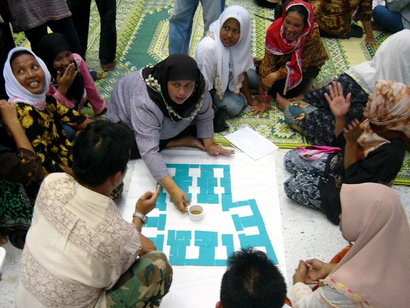
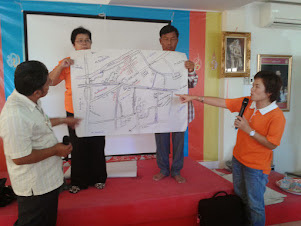
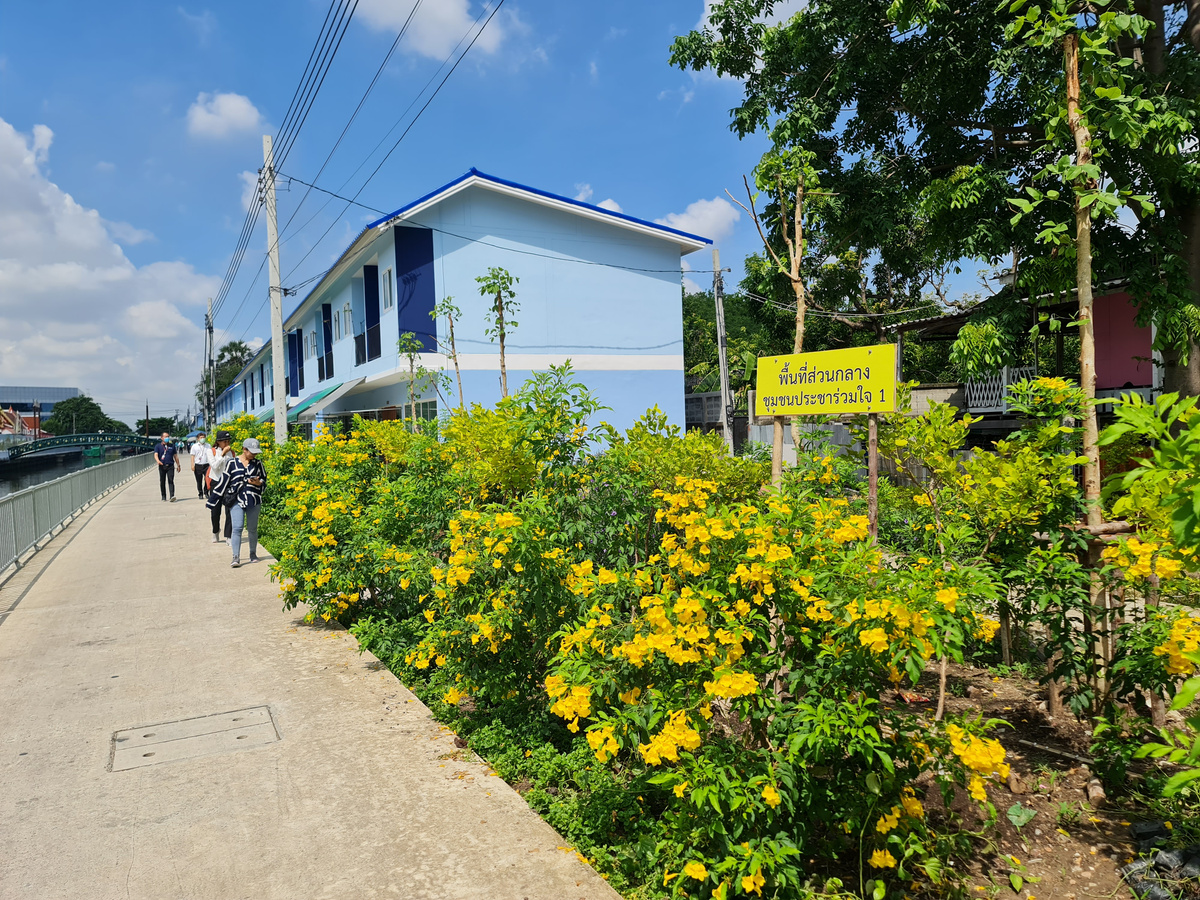
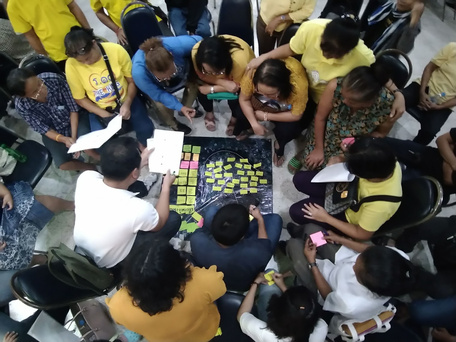
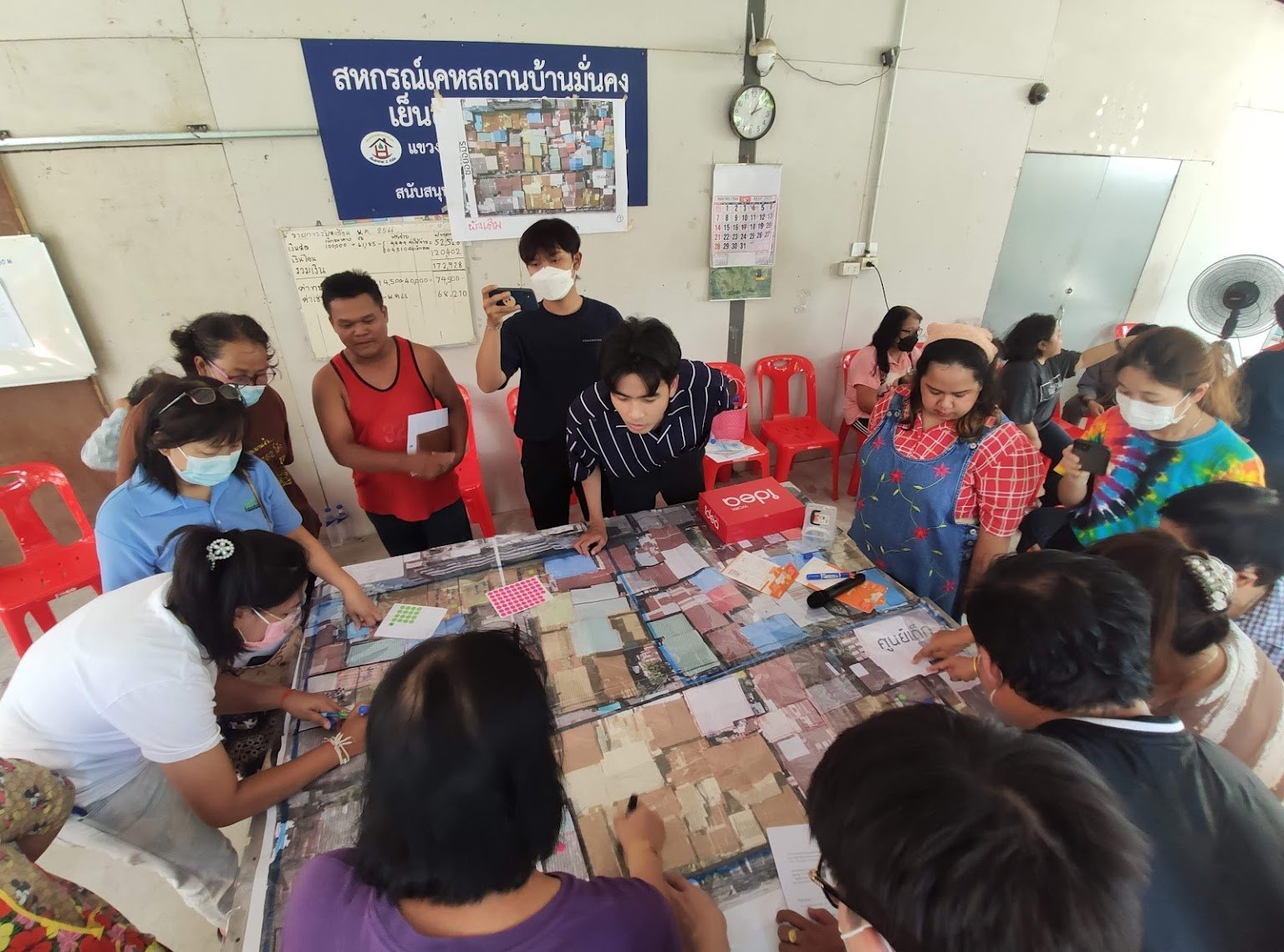
Tuesday July 2, 2024
SESSION 5: Panel discussion and presentations on collective housing in Asia (09:00 – 10:30)
SESSION 6: Global collective housing action: projects and movements (10:45 – 12:00)
SESSION 7: Panel discussion on key elements to make collective housing at scale (13:00 – 14:30)
SESSION 8: Breakout workshops on 7 key subjects of collective housing (14.30 - 16.30)
- (Moderated by Dr. Bharat Dahiya and Ms. Somsook Boonyabancha) The session will feature country-level presentations by representatives of national groups, organized by subregion: South Asia (India, Nepal, Pakistan, Sri Lanka), Southeast Asia (Philippines, Myanmar, Vietnam, Malaysia, Thailand), and East Asia (Japan, South Korea, Mongolia).
- Coffee Break (10:30 - 10:45)
- (Moderated by Ms. Lea Oswald, and Dr. Adriana Allen) Presentations will be made from four major regions: Africa (Namibia, Kenya, South Africa), Europe (Switzerland, UK), Americas (Brazil) and global networks (Community Land Trusts, Co-Habitat Network, Habitat International Coalition)
- Lunch: (12:00 - 13:00)
- Key elements in making collective housing development possible will be discussed in order to explain the interconnection between the issues that will be discussed in the following sessions. These elements include collective finance, collective land, community organization and networking, community architects, partnership and collaboration. Speakers include Ms. Somsook Boonyabancha, Ms. Lajana Manandhar, Ms. Celine D’Cruz, Ms. Lea Oswald, Mr. Khondaker Hasibul Kabir, Ms. Lumanti Joshi and Ms. Ruby Papeleras.
- Coffee Break: (14:15 - 14:30)
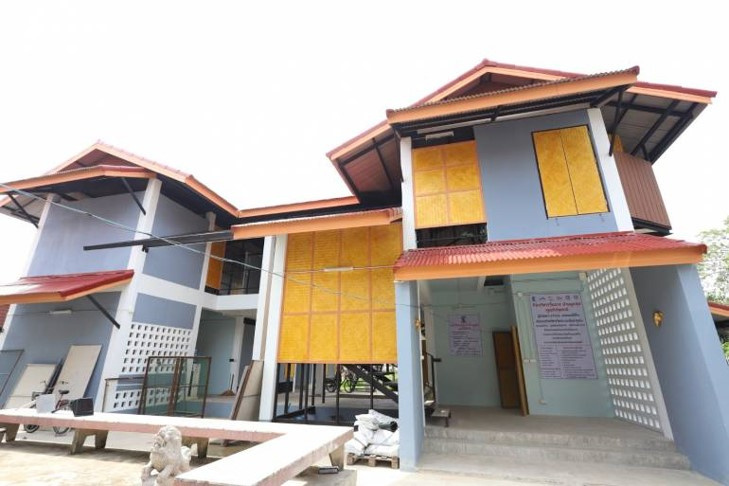
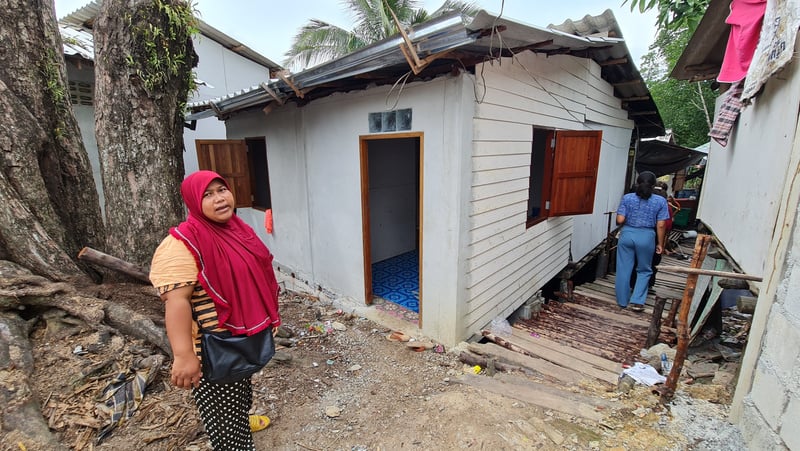
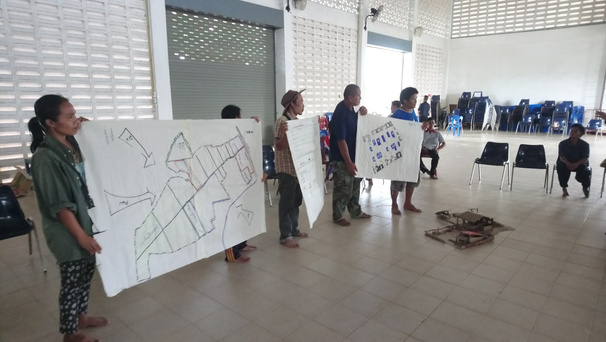
The focus of the 7 breakout workshops will be the presentation of key cases, followed by discussion, and sharing and finding of the ways forward for collective housing.
- WORKSHOP 1: Finance for collective housing (Moderated by Dr. Bussara Povutong, Dept. of Housing Development, Faculty of Architecture, Chulalongkorn University in Bangkok and Ms. Lajana Manandhar, Lumanti in Kathmandu) The discussion will focus on issues like community savings, microcredit, community funds, making financial linkages with government and private sector. Case studies will include Swiss Bank, finance in Thailand, private bank housing finance in Nepal, SDI’s Urban Poor Fund, urban poor funds in Kenya and Namibia, housing finance from microcredit company in Myanmar.
- WORKSOP 2: Collective land (Moderators to be confirmed) How to get secure land for developing collective housing at a scale that can meet the real scale of demand? Case studies from Brazil, Kenya, India, Thailand, the Philippines, Myanmar and community land trusts will be included.
- WORKSHOP 3: Community organizations, networks and participatory management (Moderated by Celine D’Cruz and Ruby Papeleras) How to make large-scale community-driven process and networking, making negotiations, building strong community and effective community participatory management? Presentations from Thailand’s Baan Mankong Program, the Philippines, Nepal, Myanmar, Indonesia, Japan, Korea and SDI.
- WORKSHOP 4: Moving from housing to sustainable development (Moderated by Prof. Jitti Monkonchaiaranya and Prof. Adriana Allen) How to move from developing secure housing to building strong healthy communities, strong social development, environment friendly, better jobs and income, active participation in city development, and make ways for the young generation. Presentations from Namibia, Thailand, SDI, Indonesia, Japan and Latin America.
- WORKSHOP 5: Community architects: How professionals can unlock community energy in collective housing planning, support creative collective housing; mapping/getting information; planning spaces for a system of healthy living together; creative use of materials, construction, and affordability? Presentations by Chawanad, Supawut, Kabir, Lumanti, Arjarn Nut, Arjarn Monton, Philippines, Indonesia, Malaysia, Nepal, Bangladesh, Myanmar.
- WORKSHOP 6: Working with the private sector (Moderated by Mr. Nattapong Jaruwannapong) How to collaborate with private sector business and institutions to support and scale up the development of collective housing? Presentations from Thailand, Malaysia, Switzerland, and Canada. WORKSHOP 7: Regulations, institutional support and collaboration (Moderated by Ms. Thipparat Noppladarom and Ms. Supitcha Tovivich) What kinds of regulations, institutional support and collaboration are needed to support collective housing at a larger scale? Presentation of cases from Thailand (Baan Pai, Bor Farang, Bonkai) and India.
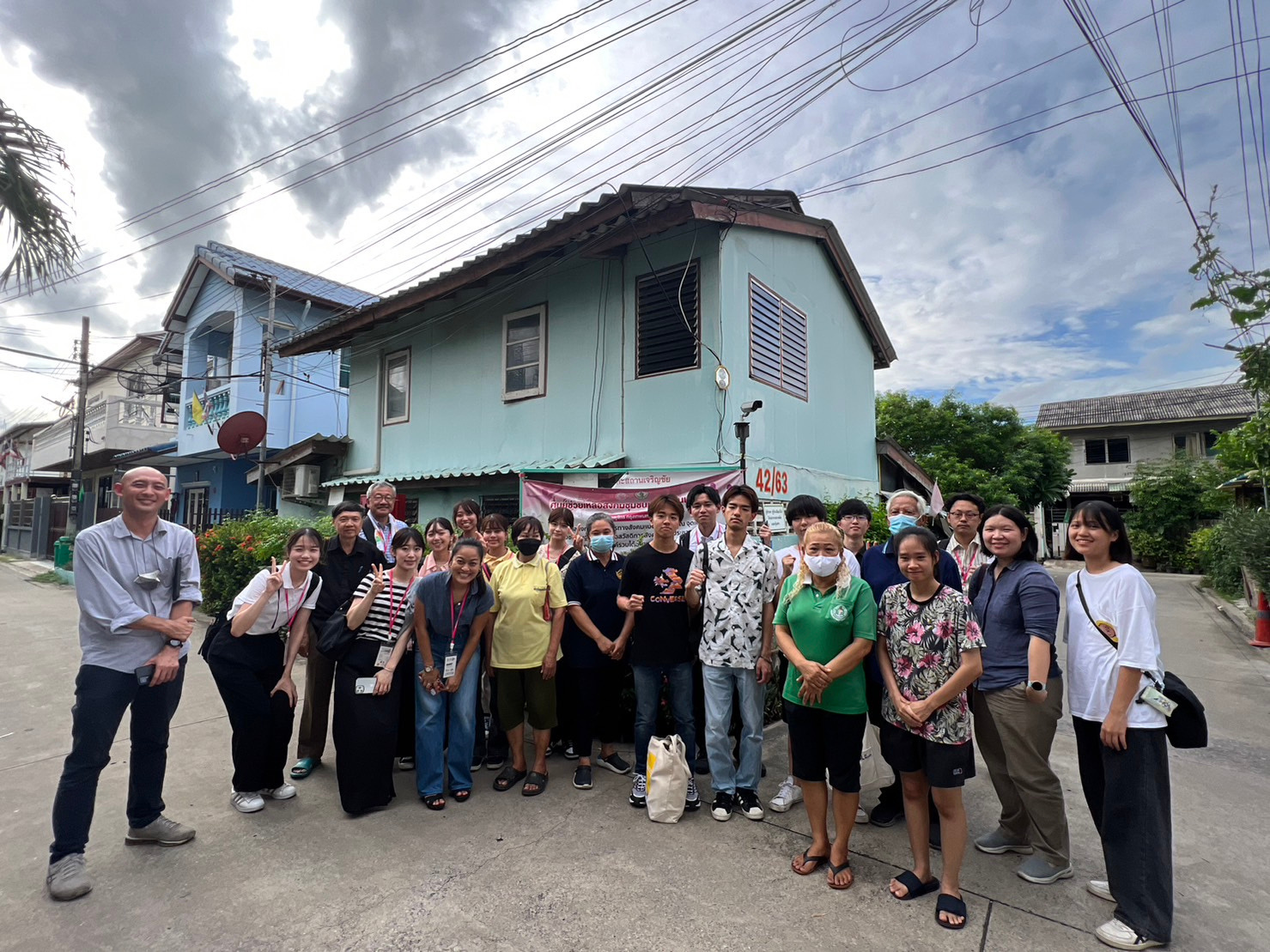
Wednesday July 3, 2024
SESSION 9: Reports from the key subject workshops and the way forward (09:00 - 10:15)
SESSION 10: How to link collective housing with global development agendas and programs?
(10:30 - 12:00)
SESSION 11: Breakout discussions on planning for future action (13:00 - 14:15)
SESSION 12: Planning the way forward for collective housing (14:30 - 16:30)
- Presentations and reports from the seven key subject workshops and open discussion (Moderated by Ms. Sri Husnaini Sofjan, Huairou Commission, and Mr. Omar Siddique, Sustainable Urban Development Section, UN-ESCAP).
- Coffee Break (10:15- 10:30)
- (Moderated by Mr. Omar Siddique) This session will begin with a recorded presentation by Ms. Kerstin Sommer, Head of the Slum Upgrading Program, UN-Habitat. Session will also include presentations by UN-Habitat, ESCAP, SDGs, Habitat for Humanity, Community Land Trust, CoHabitat Network and Habitat International Coalition, with discussion following.
- Lunch: (12:00 - 13:00)
FIELD VISIT 3 (14:30 – 17:00)
Additional field visits for those who missed earlier trips. Participants can chose one of the following collective housing projects to visit:
Baan Mankong collective housing along canals in Bangkok. District-wide collective housing in Bangkok’s
Wangthonglang District Collective housing for the homeless, and for displaced railway communities
Informal discussion to draft “Bangkok Declaration on Collective Housing 2024” (17:00 - 20:00) Participants for this session are to be confirmed.
In this session, participants will break into three groups to reflect and plan for possible future action and collaboration.
Country-level discussions: Each country-level group discussion to reflect and plan for possible country action for the future, touching these three points: What have we learned from the past on collective housing in the country? What are the crucial elements for the implementation of the collective housing agenda in the future? How the country level groups will implement the process of collective housing, what is the way forward, and how could we do more?
International collaborations: Discussions to collaborate and join hands and building new collaborations and networks within and across regions to work together and share knowledge and experiences in the future, collaboration with research institutions, etc. (For example, ACHR and Habitat for Humanity) Working groups of common interest
- Coffee Break (14:15 - 14:30)
This session will feature two parallel breakout discussions for planning the future agenda for collaboration:
1. Policy dialogue: How can governments support collective
housing at scale? Government officers, senior professionals,
key NGO workers and representatives from international
agencies can reflect, share and discuss on possible ways to support to strengthen the collective housing movement and support the implementation of more and better collective housing with better policies, programs, etc.
2. Global community network collaboration: Representatives from international community networks will discuss potential future collaboration on collective housing.

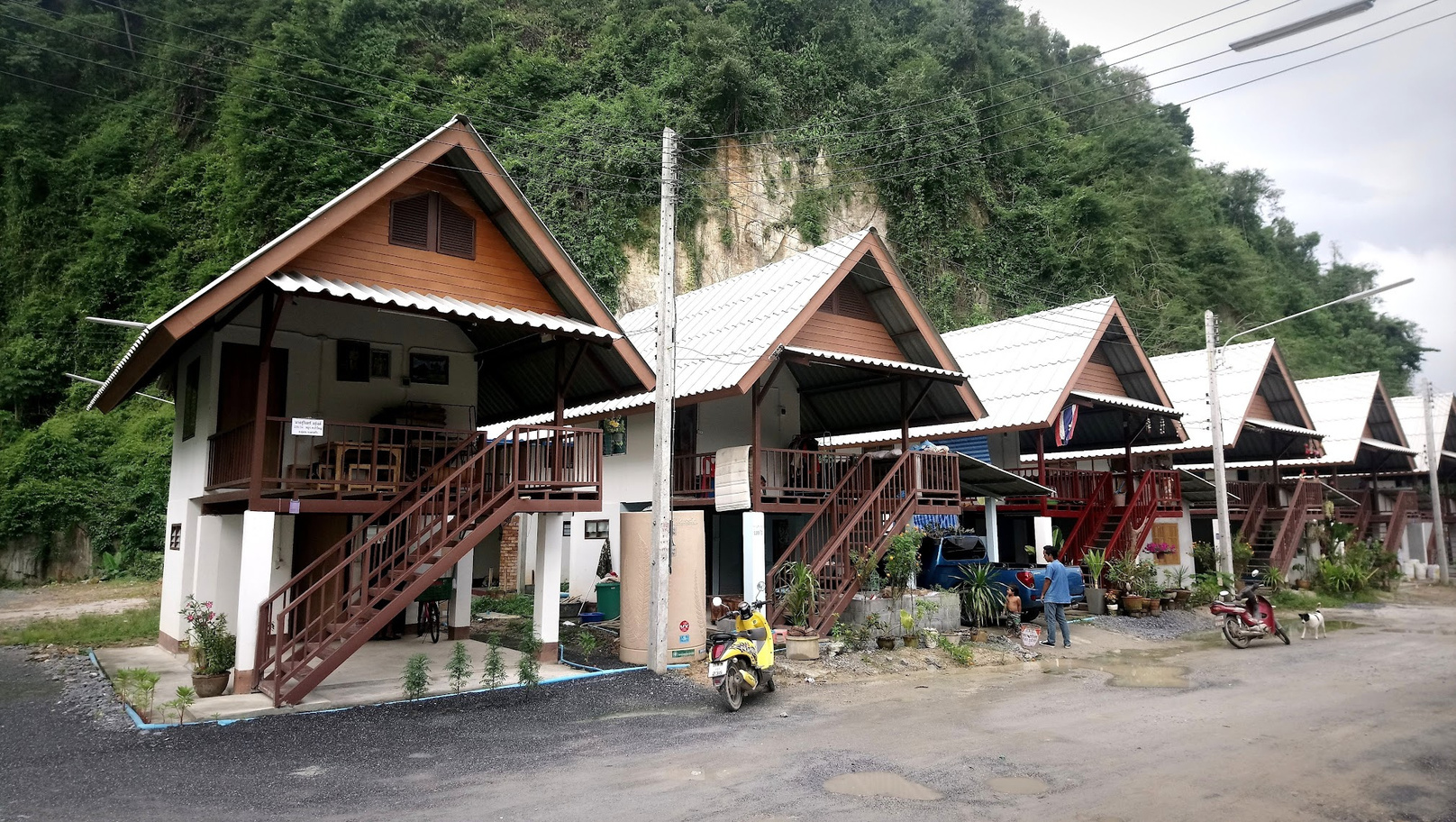
Thursday July 4, 2024
SESSION 10: How to link collective housing with global development agendas and programs?
(10:30 - 12:00)
SESSION 13: Reports and open discussion
on follow-up actions and future collaboration after the conference (09:00 - 12:00)
SESSION 11: Breakout discussions on planning for future action (13:00 - 14:15)
SESSION 12: Planning the way forward for collective housing (14:30 - 16:30)
This session will include several reports, with discussion following each:
Reports from the country-level groups
Reports from the workshops
Reports about proposed plans and activities from Session 11 on “Planning for future action,” including reports from the international knowledge sharing and collaboration group and the global community network collaboration group, followup activities and conclusion.
Group photo
Declaration: “Bangkok Declaration on Collective Housing 2024”, with discussion about planning the next steps for the declaration, how to make use of it and how to circulate it to governments, international organizations and other key stakeholders.
Vote of thanks from the conference organizers and participants
Farewell lunch (12:30 - 1:30) at Prince Palace Hotel
Informal additional discussions and meetings (13:30 –16:00)
July 4 – 5, 2024: everyone goes home
- (Moderated by Mr. Omar Siddique) This session will begin with a recorded presentation by Ms. Kerstin Sommer, Head of the Slum Upgrading Program, UN-Habitat. Session will also include presentations by UN-Habitat, ESCAP, SDGs, Habitat for Humanity, Community Land Trust, CoHabitat Network and Habitat International Coalition, with discussion following.
- Lunch: (12:00 - 13:00)
In this session, participants will break into three groups to reflect and plan for possible future action and collaboration.
Country-level discussions: Each country-level group discussion to reflect and plan for possible country action for the future, touching these three points: What have we learned from the past on collective housing in the country? What are the crucial elements for the implementation of the collective housing agenda in the future? How the country level groups will implement the process of collective housing, what is the way forward, and how could we do more?
International collaborations: Discussions to collaborate and join hands and building new collaborations and networks within and across regions to work together and share knowledge and experiences in the future, collaboration with research institutions, etc. (For example, ACHR and Habitat for Humanity) Working groups of common interest
- Coffee Break (14:15 - 14:30)
This session will feature two parallel breakout discussions for planning the future agenda for collaboration:
1. Policy dialogue: How can governments support collective
housing at scale? Government officers, senior professionals,
key NGO workers and representatives from international
agencies can reflect, share and discuss on possible ways to support to strengthen the collective housing movement and support the implementation of more and better collective housing with better policies, programs, etc.
2. Global community network collaboration: Representatives from international community networks will discuss potential future collaboration on collective housing.
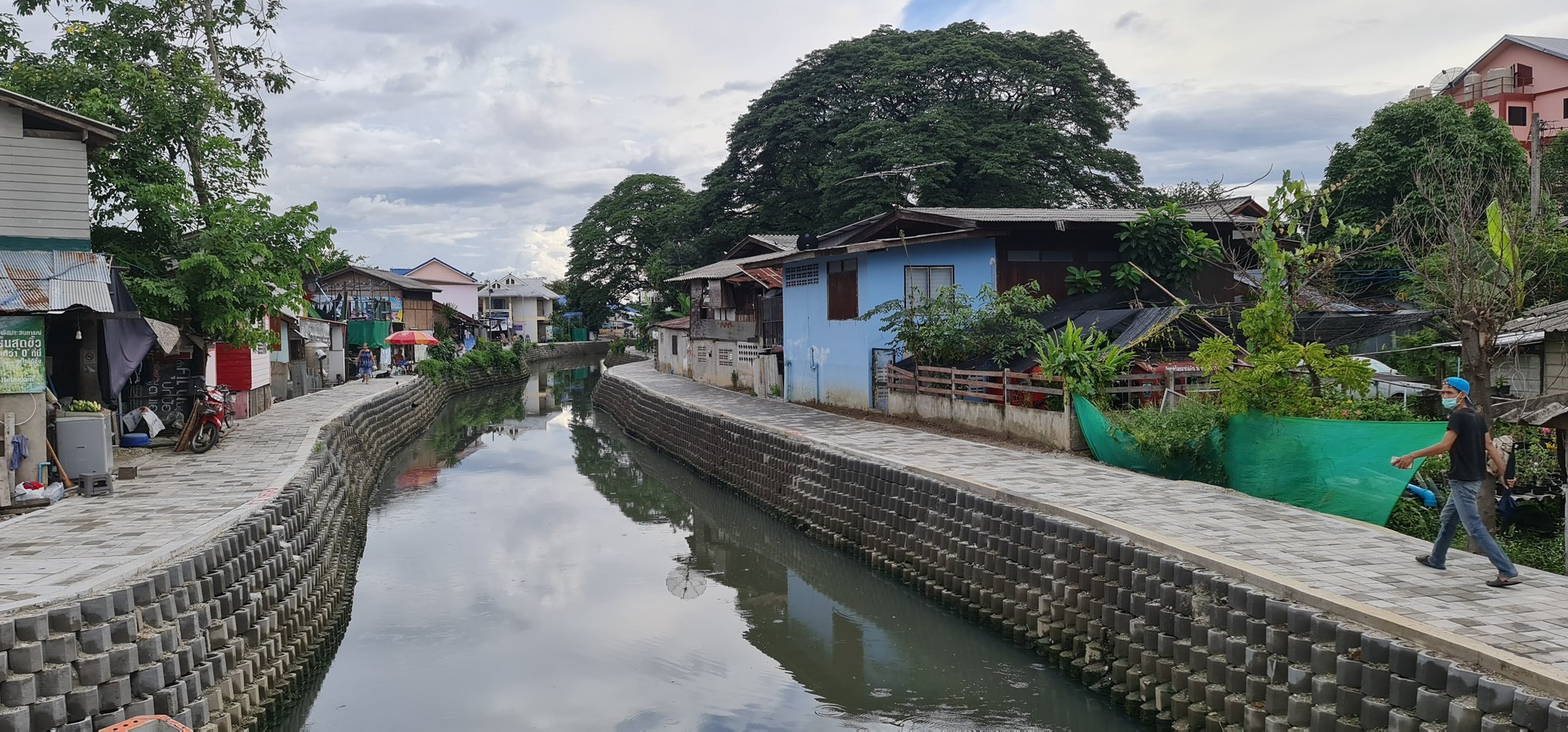
Schedule of FIELD VISITS
There will be 3 field visits organized during the conference:
FIELD VISIT 1: Sunday June 30 (All day, 08:00-17:30)
FIELD VISIT 2: Sunday June 30 (Half day, 12:30-17:30)
During this day-long tour, we will visit 4 different types of Baan
Mankong collective housing projects in Bangkok. At the end of the
day, everyone will come together for a welcome party hosted by
the Thai Community Network:
- 08:00-08:30 Orientation at hotel to explain about the field visits
- 08:30-10:00 Leave for the canal upgrading projects. About 20
participants can join a boat ride to observe various stages of
housing upgrading along the Prem Prachakorn Canal. The rest
will go by bus to the Prachaa Ruamjai canal-side upgrading
community, where the boat-ride group will also join the discussion.
- 10:00-11:00 Discussion at Prachaa Ruamjai community about
canal upgrading projects
- 11:00-11:15 Leave for Charoenchai Nimitmai community
- 11:15-12:00 Discussion with community at Charoenchai Nimitmai
- 12:00-12:30 Leave for Bor Farang Community (a land sharing
project implemented in collaboration with private sector)
- 12:30-13:30 Lunch at Bor Farang community
- 13:30-14:30 Discussion with community and visit project
- 14:30-15:15 Leave for Pathum Thani Homeless Housing Center
- 15:15- 16:30 Discuss with community and visit to the PathumThani
- Homeless Housing project
- 16:30-17:30 Welcome party hosted by Thai Community Network
- 17:30-18:30 Travel back to the hotel
Participants who arrive late or have other meetings in the morning
and cannot join the full-day program can join the second half of the
field visits described above, starting from the lunch at Bor Farang:
- 12:30-13:30 Lunch at Bor Farang community
- 13:30-14:30 Discussion with community and visit project
- 14:30-15:15 Leave for Pathum Thani Homeless Housing Center
- 15:15- 16:30 Discuss with community and visit to the PathumThani
Homeless Housing project
- 16:30-17:30 Welcome party hosted by Thai Community Network
- 17:30-18:30 Travel back to the hotel
FIELD VISIT 3: Wednesday July 3 (14:30-17:00)
Participants can join one of the following three field visit options:
Option A: Bang Bua Canal upgrading project + Sapan Mai Canal Community
Option B: District-wide upgrading in Wangthonglang District
Option C: Suwit Wattanoo Collective Homeless Housing Center + housing project
for those affected by railway project in Taling Chan District (Four Regions Slum Community Network)
* NOTE: For participants who are interested in joining any of
these field trips, please talk with the meeting organizers soon after
arriving, so we can plan for everyone’s transport and food.

Scan this
QR code for an online
map which shows the UN,
the hotel, the communities
in the site visits and
some food and tourist
attractions nearby
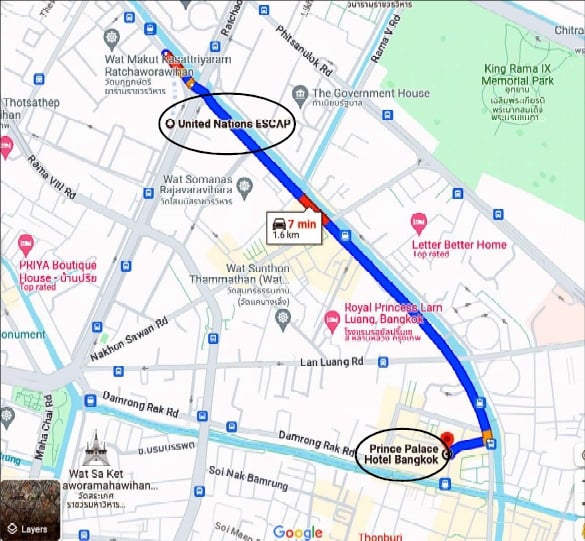
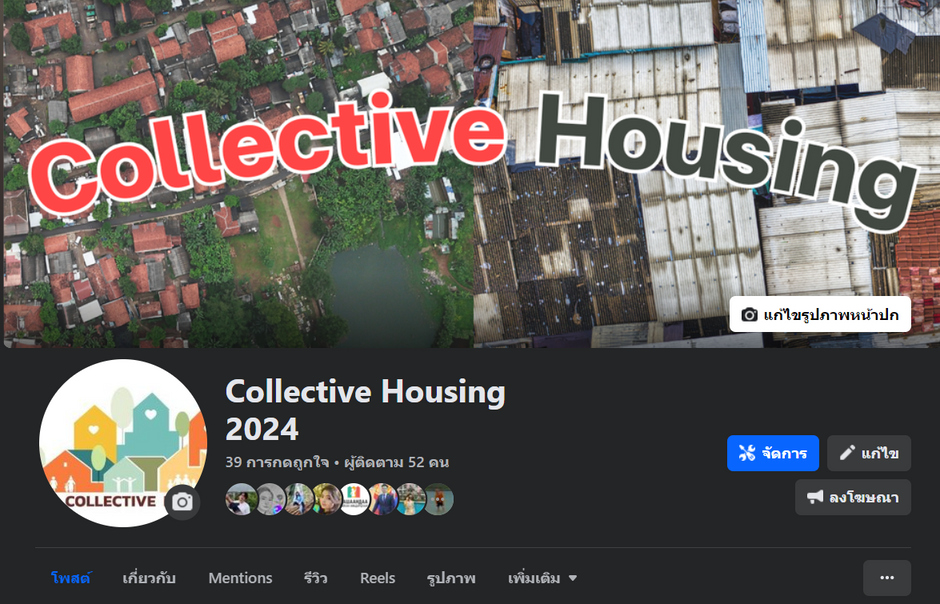
🏡Collective Housing 2024🏡
📁Link google drive file presentation 1st - 4th Jul 2024
⬇️⬇️⬇️
